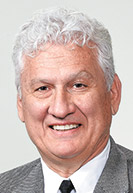Subscriber Benefit
As a subscriber you can listen to articles at work, in the car, or while you work out. Subscribe NowThe question of infringement can be straightforward. Did the defendant usurp the plaintiff’s trademark in a way that confuses consumers?
But the question becomes more complicated when intent is added to the mix. Did the defendant know their conduct was infringement? Or, in other words, was the infringement willful?
Willfulness can be a more difficult standard to meet, intellectual property lawyers say, but not all cases require that standard. Among the circuit courts of appeal, there is an even split between the 1st, 2nd, 8th, 9th, 10th and Washington, D.C., circuits and the 3rd, 4th, 5th, 6th, 7th and 11th.
The split concerns the question of profits: Does the Lanham Act require a showing of willfulness to allow a plaintiff to recover profits? The 7th Circuit is among those that don’t read the willfulness requirement in the trademark law.
The United States Supreme Court is set to bring clarity to the circuit split when it hears arguments in Romag Fasteners Inc. v. Fossil Inc., 18-1233, next month.
The case
Romag centers on the world of fashion. Romag sells trademarked snap fasteners to be used in wallets, handbags and other leather goods, and fashion designer Fossil buys the fasteners for use in its consumer products.

In 2010, Romag discovered some Fossil products were using counterfeit fasteners bearing the Romag mark. The fastener manufacturer filed suit in federal court in Connecticut, where a jury returned a verdict of infringement, but not willful infringement. Under precedent in the 2nd Circuit, which includes Connecticut, that meant Romag could not recover profits.
The Federal Circuit – which heard the appeal because it involved a patent issue – later affirmed the profits question, leading Romag to successfully seek cert at the Supreme Court.
Spiro Bereveskos, a partner with Woodard, Emhardt, Henry, Reeves & Wagner, said the jury in Romag likely saw a difference between willfulness and carelessness. Fossil wasn’t willful in that it didn’t act in bad faith, Bereveskos said, but the jury likely found that the defendant was careless.
The fasteners at issue were manufactured in China, a country Bereveskos said is notorious for ignoring American IP rights. Thus, the jury’s verdict likely reflected a belief that Fossil failed to adequately police its overseas manufacturer.
The law

But carelessness is not enough to prove willfulness. According to Jonathan Polak, chair of the IP practice group at Taft Stettinius & Hollister, a willfulness showing requires a “smoking gun” that can be hard to identify. The smoking gun might be an email discussing infringement plans, or a witness who overheard discussions about infringing on another trademark.
Polak noted Romag focuses on infringement of both registered and unregistered marks under Section 1125(a) of the Lanham Act, rather than registered marks under Section 1114.
The question a jury is looking at is whether the defendant intended to cause confusion by infringing on a trademark, James Hinshaw, a litigator with Bingham Greenebaum Doll who focuses primarily on IP law, said. The financial stakes hinging on that question can be high.
“The ability to go after the infringer and force them to disgorge their ill-gotten gains is huge,” Hinshaw said. “The financial stakes are dramatically increased if you can recover that.”
The jury – finding Fossil had acted with “callous disregard” – determined Romag was entitled to $90,759.36 in profits “to prevent unjust enrichment,” plus $6.7 million in profits “to deter future trademark infringement.” About 1% of Fossil’s profits were attributable to the infringement, the jury said. But the Connecticut court upheld the willfulness requirement and struck the profits.
The split

The 7th Circuit hasn’t addressed the willfulness question since 1989 in Roulo v. Russ Berrie & Co., 886 F.2d 931 at 941. In that case, Hinshaw said, the circuit court determined the statute doesn’t expressly require a willfulness showing, but that willfulness is one factor of many.
Polak said the 7th Circuit’s reading of Section 1125(a) comes from the philosophy of Judge Frank Easterbrook and retired Judge Richard Posner. Those judges look at the “economics of the law,” Polak said – that is, legal analysis should be guided by the fact that there are inherent risks to doing business.
“If willfully or not, if you trip up, there is a cost to be paid for that,” Polak said, explaining Easterbrook and Posner’s view. “You have taken the goodwill from the brand holder and used it for your own benefit.”
That view allows for disgorgement of profits even without the willfulness requirement, Polak said. Jodi Clifford, director of the Intellectual Property and Entrepreneurship Clinic at the Notre Dame Law School, said the circuit philosophy differences can create the risk of forum shopping.
If the coming Supreme Court ruling broadens the ways in which plaintiffs can recover profits in an infringement suit, Clifford surmised that mark holders might have more incentive to pursue infringement cases. On the flip side, if the willfulness requirement is upheld, Polak said more defendants might be willing to “roll the dice” on products they might otherwise have thought twice about introducing into the market, because the “smoking gun” documents don’t always exist.
Bereveskos doesn’t expect the Supreme Court ruling to change much about how he litigates infringement cases – he’ll still proceed under the question of whether the alleged infringer acted in bad faith. But as a lawyer who practices in multiple circuits, Hinshaw said the coming guidance is welcome.
“As a practitioner, I’m looking for certainty in the law,” he said.
Oral arguments will be heard Jan. 14.•
Please enable JavaScript to view this content.
